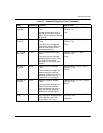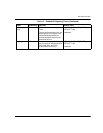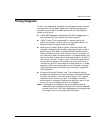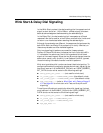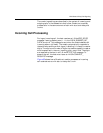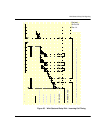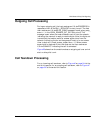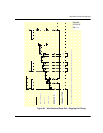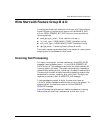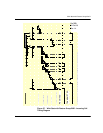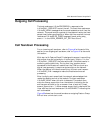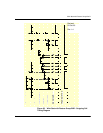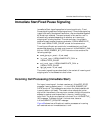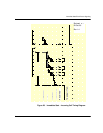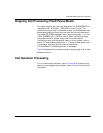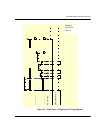
Wink Start with Feature Group B & D
November 2009 281
Wink Start with Feature Group B & D
To configure a Brooktrout module for wink start with Feature Group
B and D signaling, the host must issue an L4L3mENABLE_CAS
with an IISDN_ROBBED_BIT_DATA structure that contains the
following settings:
send_glare_err_event = 0 (not used for wink start)
in_trunk_type = IISDNttWINK_START (the default value)
out_trunk_type = IISDNttWINK_START (the default value)
fgb_fgd_mode = 1 (enabling Feature Group B and D)
The remaining settings are described in the context of incoming and
outgoing calls in the subsections that follow.
Incoming Call Processing
During an incoming call, the host receives an L3L4mPRE_SEIZE
message if send_preseize_event = 1 in the IISDN_ROBBED_BIT_
DATA structure. This message is sent when the module detects an
incoming seizure (off hook). The module automatically responds to
the seizure by sending a wink, indicating it is ready to receive digits.
The maximum number of digits the module expects to receive must
be specified in the max_incoming_digit_count field. The digits are
reported to the host in an L3L4mSETUP_IND message.
To acknowledge the receipt of digits, the host must issue an
L4L3mTX_WINK message to send another wink to the network. To
answer the call, the host must issue an L4L3mCONNECT_
REQUEST message.
Figure 27 shows how a Brooktrout module processes an incoming
Feature Group B and D call received over a wink start trunk.



